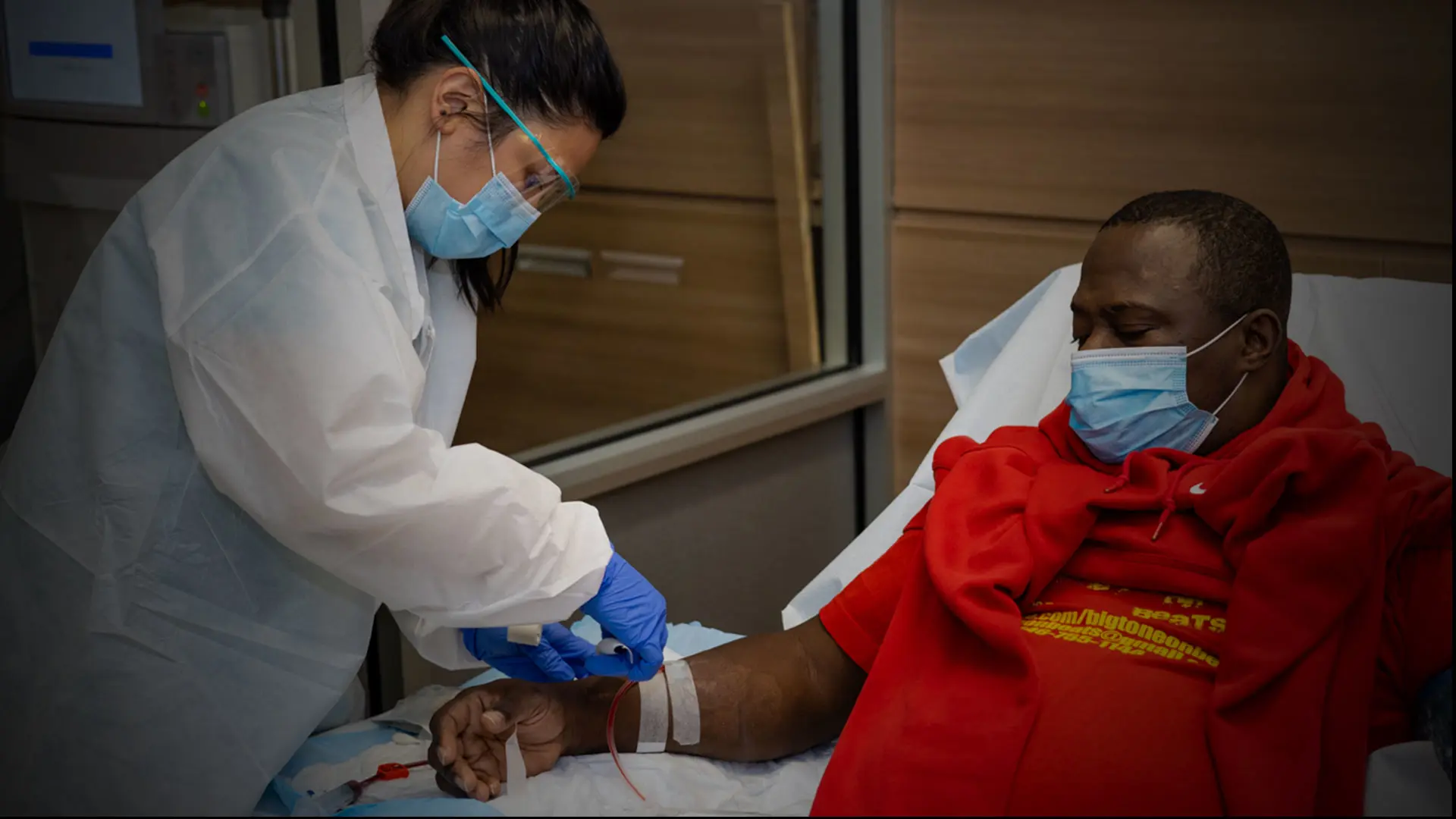The widespread notion that COVID-19 was primarily a respiratory disease flew out the window at New York’s Mount Sinai Health System when nearly half of all patients admitted in the early days of the pandemic showed signs of acute kidney injury (AKI). That eye-opener quickly turned into a vigorous research and clinical offensive by the Department of Medicine that in the following months would expand the entire world’s knowledge of the risk factors, outcomes, and potential therapeutic strategies around COVID-19 and the kidney.
“The incidence of acute kidney injury was much higher than we ever anticipated based on early reports out of China,” recalls Lili Chan, MD, Assistant Professor of Medicine (Nephrology) at the Icahn School of Medicine at Mount Sinai. “The good news was that our experience gave us the opportunity to generate insights much sooner than other medical centers and hospitals, and share our findings with them.”
An early observational study in the Journal of the American Society of Nephrology, led by Dr. Chan and Girish Nadkarni, MD, Irene and Dr. Arthur M. Fishberg Professor of Medicine, found, for example, that of COVID-19 patients admitted to five Mount Sinai hospitals, 46 percent had AKI, of which 19 percent required dialysis. The research team also learned that patients who developed AKI tended to be older and were more likely to have hypertension, congestive heart failure, diabetes mellitus, and chronic kidney disease. Even more revealing was the finding that only 30 percent of patients with AKI had recovered their baseline kidney function by time of discharge, and that in-hospital mortality was 50 percent among patients with AKI versus 8 percent among those without the disease.
46 percent
of COVID-19 patients admitted to five Mount Sinai hospitals had AKI
These results prompted investigations by the Nephrology team along two major fronts: acute care and long-term outcomes.
“We used the extensive data and specimen collection resources of Mount Sinai to identify the molecular determinants of COVID-19 and associated kidney injury,” explains Evren Azeloglu, PhD, Associate Professor of Medicine (Nephrology), of the National Institutes of Health-funded acute care investigation. “We then combined artificial intelligence with state-of-the-art molecular measurement techniques to construct an algorithm that could accurately predict disease outcomes.”
The goal, according to the researchers, was to create a risk score that could project within 24 to 48 hours of hospitalization the likelihood that a patient would develop AKI requiring dialysis, and to make that predictive tool available through the electronic health record system.
"The proportion of patients who recovered at hospital discharge from COVID-19-related AKI is much lower than the recovery rate we observed among those who developed AKI from other conditions."
Lili Chan, MD
The second study is even more ambitious: attempting to understand the long-term epidemiology and potential mechanisms of kidney disease in survivors of COVID-19. In the course of that ongoing work, researchers hope to uncover new markers and potential therapeutic targets for COVID-19-associated kidney disease, and to validate a composite risk score for long-term kidney outcomes. “We hope to identify biomarkers that, when incorporated with clinical variables in an algorithm, can identify who is at low, intermediate, or high risk of progressive kidney disease three or four years downstream,” notes Steven Coca, DO, Associate Professor of Medicine (Nephrology). That longitudinal study is a collaborative effort with the University of Michigan, Yale University, Johns Hopkins University, and Rutgers University.
“The proportion of patients who recovered at hospital discharge from COVID-19-related AKI is much lower than the recovery rate we observed among those who developed AKI from other conditions,” says Dr. Chan. “This leads us to believe that the post-hospitalization burden is going to be substantially greater on COVID-19 survivors. And that’s troublesome because accumulating evidence shows AKI and failure to recover are linked to such downstream outcomes as cardiovascular disease and increased mortality.”
Featured

Steven Coca, DO
Associate Professor of Medicine (Nephrology)

Girish N. Nadkarni, MD, MPH
Chair of the Windreich Department of Artificial Intelligence and Human Health, Director of the Hasso Plattner Institute for Digital Health, Chief AI Officer, Mount Sinai Health System
